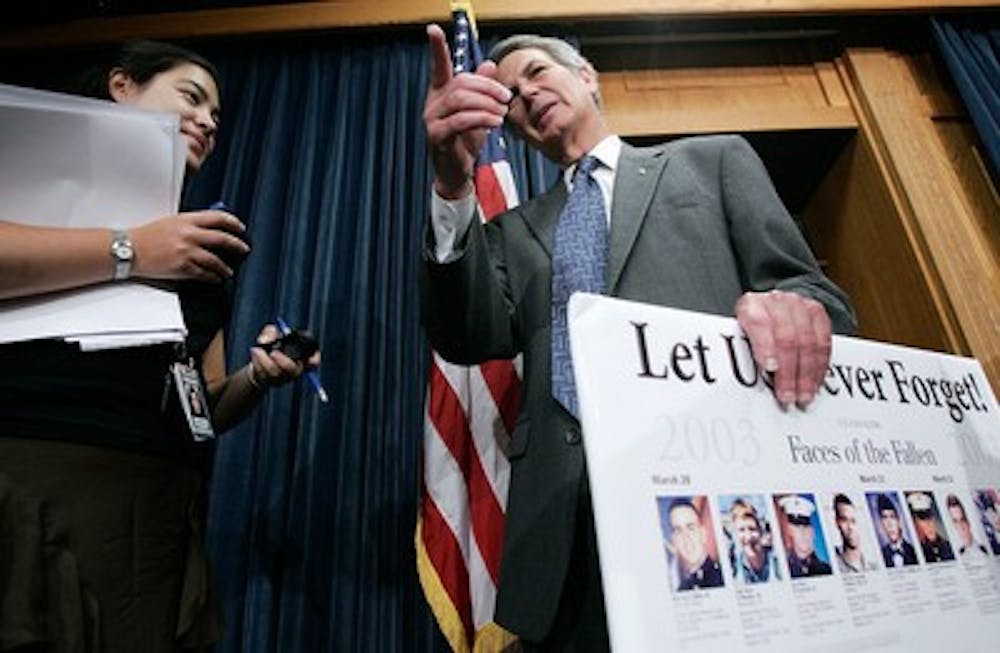U.S. Rep. Walter Jones, R-N.C., died on Sunday afternoon, leaving another U.S. House of Representatives seat from North Carolina in question.
The Republican representative of District 3, known for reversing his position on U.S. military intervention in Iraq against party lines, turned 76 years old that day. He died in Greenville, about three weeks after he entered hospice care in January for a broken hip.
“Having worked alongside him for nearly 25 years, I can tell you without hesitation that he left North Carolina, Congress and our country better places than he found them,” U.S. Sen. Richard Burr, R-N.C., said in a statement on Sunday. “Walter will be remembered as a man of strong principles, willing to take an unpopular stand when necessary.”
In addition to Burr's statement, members of Congress from both sides of the aisle released statements mourning the death of the representative, citing his long tenure and voting record that was not always partisan.
“A respected colleague and a true friend, he will be remembered for his principled stands, sincere humility and deep love of North Carolina — which he proudly served for nearly a quarter of a century,” U.S. Rep. David Price, D-N.C., said in another Sunday statement.
Jones, a former member of the House Committee on Armed Services, regularly advocated for veterans. Though he stood with the Republican Party on issues such as cutting government spending, abortion access and gun rights, he was hailed by some as a moderate Republican voice in Congress.
“I don’t believe there are candidates as bipartisan as Jones in my area,” said Sophia Jenkins, a first-year at UNC who was one of his constituents. “Perhaps they will seek a bipartisan candidate, but most people will vote with party lines the majority of the time. Representatives as bipartisan as Jones are rare.”
Voters in District 3, located across North Carolina’s coast and the Outer Banks, will fill Jones’ vacant seat in the coming months with a special election.
“Special elections are mostly like other congressional elections,” said Sarah Treul, professor of political science at UNC. “The difference is that they are at a special time.”



